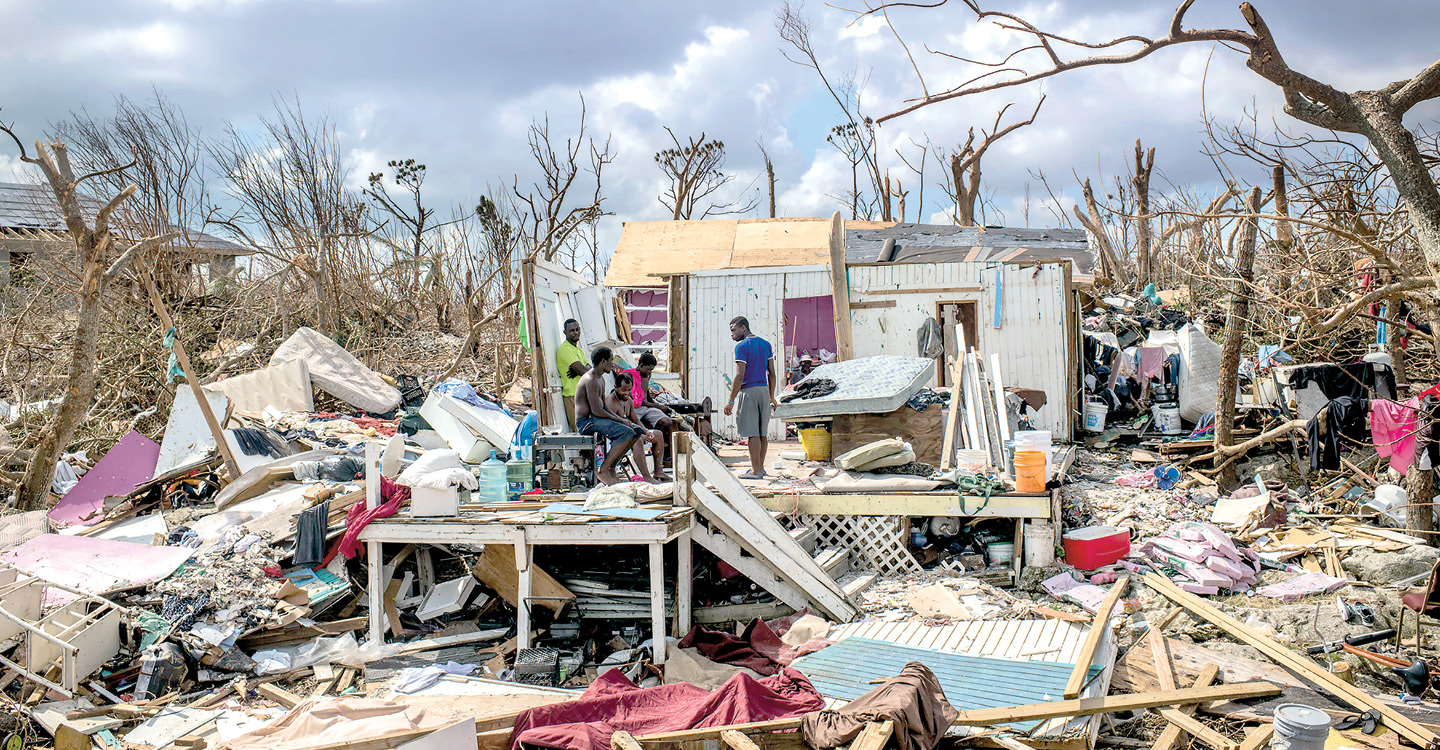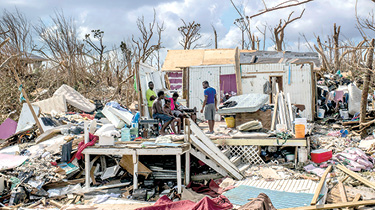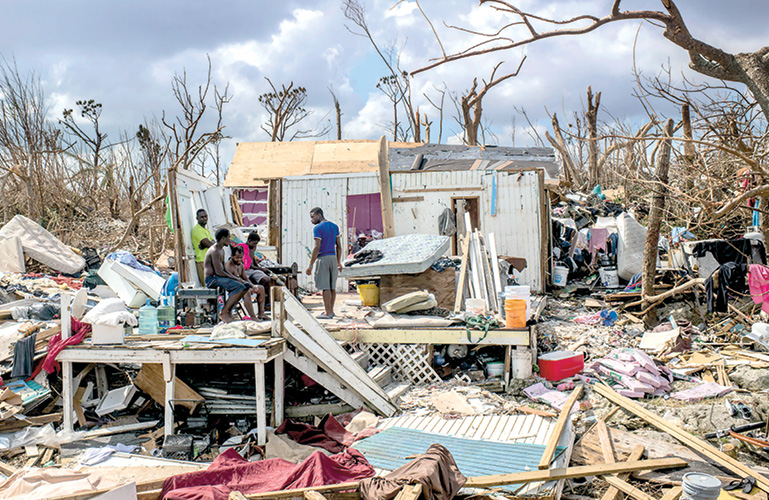Jim McMahon
When Hurricane Dorian swept through the northern Bahamas last month, it demolished just about everything in its path: houses, schools, banks, gas stations, supermarkets, restaurants, churches, pharmacies, power and phone lines. And at the moment, no one knows when those things will be restored. The Category 5 storm was the strongest hurricane on record to hit the Bahamas, killing dozens and leaving many residents homeless. Experts estimate the damage from Dorian at more than $7 billion—but it could be months before they know the full extent of the destruction. Hurricanes often take a disproportionate toll on the poor, who may live in more vulnerable structures and in areas prone to flooding. After the storm, thousands of survivors began attempting to flee the islands by boat or airplane, but others planned to stay and rebuild. “We have to be resilient,” says O’Neil Wildgoose, who, because of flooding, spent two days on the roof of his home with his wife and dog. “We can’t give up.”



